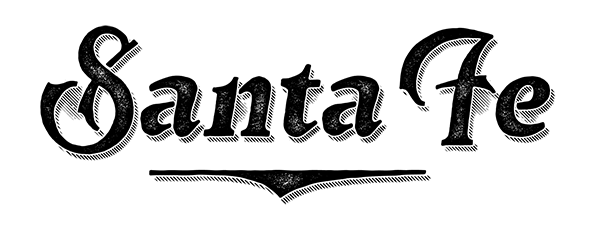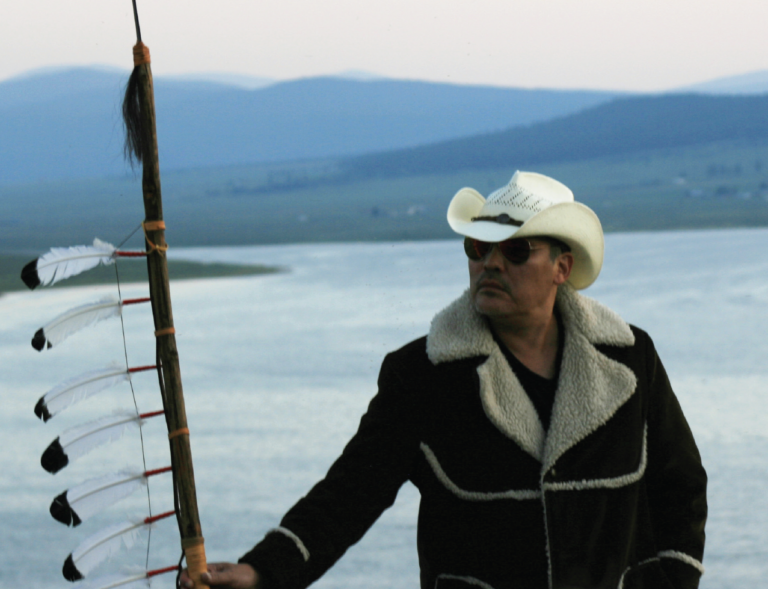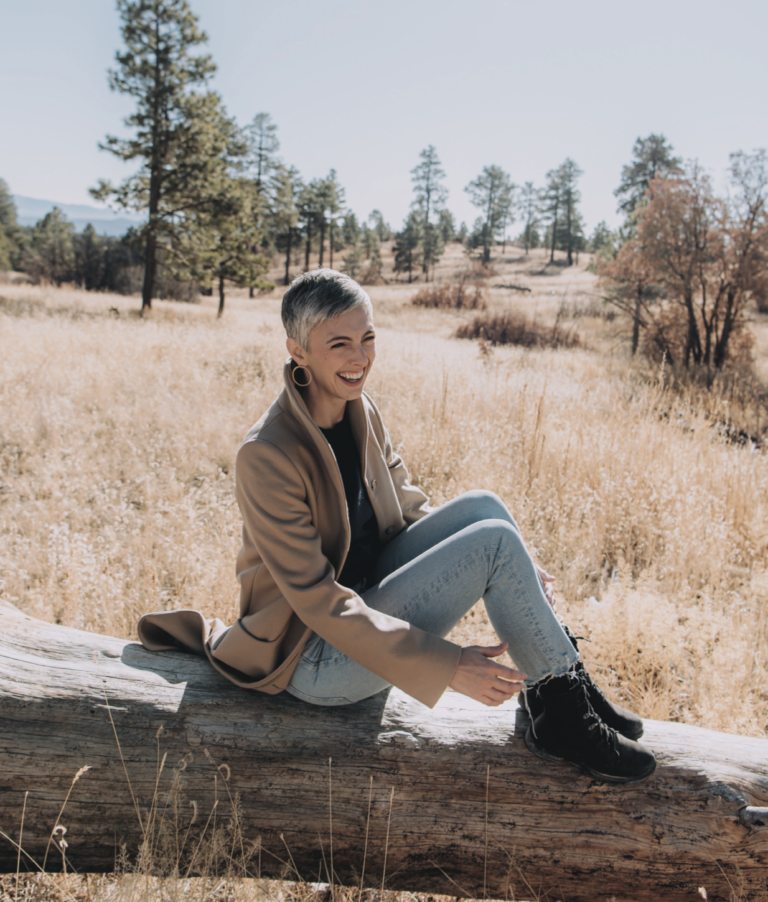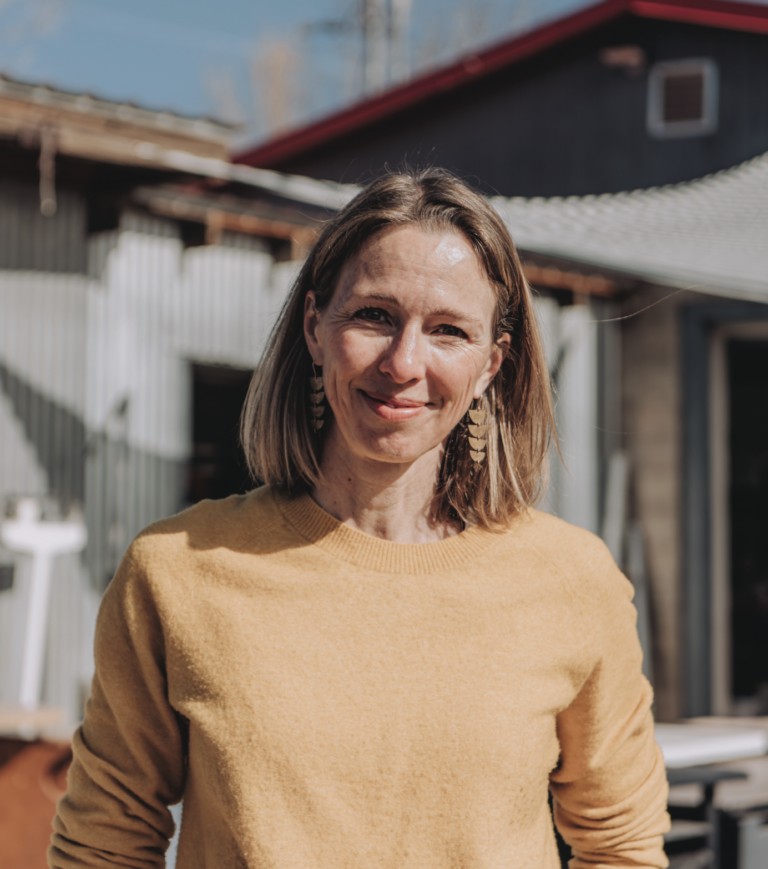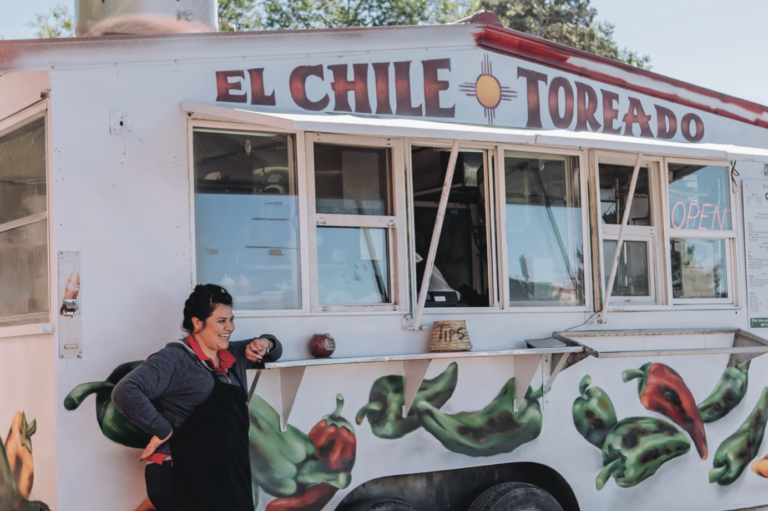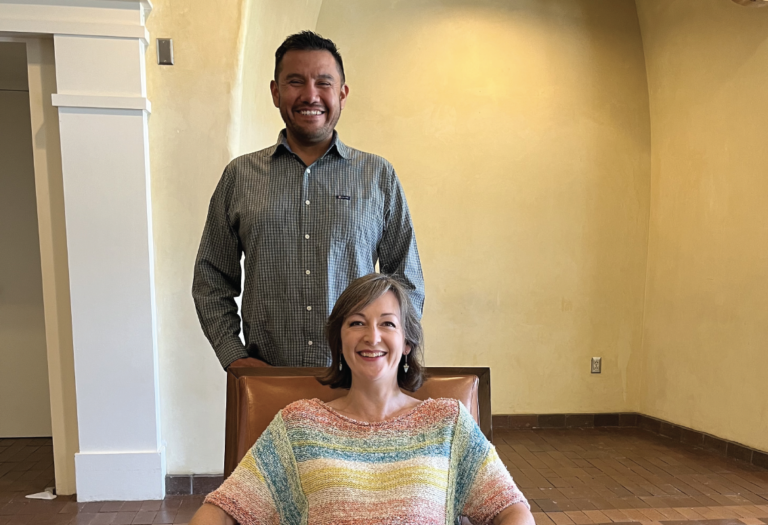IF THERE IS A WISER, more enlightened person, than N. Scott Momaday, show me. And if there is a more eloquent, important book than his latest, The Earth Keeper, then send me the book. Please.
Scott acknowledges he is an elder now, though, he says, that took a while for him to get used to. Time has always been important to him, and he has been famous – a legend, really – since winning the Pulitzer Prize at age 34. That novel, House Made of Dawn, catapulted Native American literature into the mainstream.
And, as the first Native American Pulitzer winner, he was subject to any number of random people who tried to quickly extract his wisdom, celebrity, or just that special something that he obviously has. I say this because I felt singularly humbled to be talking him, to be in his presence. He has that, presence.
You were given a horse when you were twelve. You have noted that
Alexander the Great received one at the same age. What did it mean to you?
A great deal. We had moved to Jemez Pueblo and my parents bought me a horse from a man in the village. It was a very nice strawberry road quarter horse, very fast. And I spent a lot of time on the back of that horse over five or six years. The thing that mattered most to me was that it gave me a chance to understand more about my heritage. I learned what it was like to ride a horse.
I discovered the country that way.
What about dogs? You say that dogs could talk.
There is a story about a man who was saved by a talking dog. And the man would retell it as a way of preserving oral tradition: This happened a long time ago when dogs could talk. I asked my father about it and he said, You know how they stopped talking? The wise man and trickster figure in Kiowa got mad at dogs because they were abusing their privilege of speaking. They were talking about the Kiowa behind their backs. So he told them: You have gone too far with this privilege.
So I’m going to give you a signal and when I give it to you, I want you all to say the word hop and that’ll be the last word you speak.
I looked at my dad and said, Hop? And he said, I don’t know. That’s just the saying they wanted.
There’s more. I was living in San Francisco and was invited to speak to a sixth-grade class at the Hebrew Academy and I didn’t know what to say to an audience of that age. Then this story came to mind. When I said, This happened a long time ago when dogs could talk, a little girl in the front row looked up at me and said, Those were the days.
We need dogs. There were always dogs around by grandmother’s place in Oklahoma. My mother loved dogs and we always had a dog in the house.
You have spoken about the shame natives felt about killing buffaloes,
and their pain of seeing people who indiscriminately killed them –
murderers who should have shame who had no shame.
Shame is an interesting concept. And it’s funny, you should mention it today because I just wrote a note to one of my daughters. I’ve been sending her little snippets about the earth. She puts them on Twitter. Today I said, it is shameful to desecrate the earth. Shame is acquired. It’s like hate. It’s acquired, not inherited. It’s hard to understand how people can be shameless.
But the earth does not want our shame. It wants to be our nourishment and it wants us to be protective of it and grateful to it. So love is the proper way to think of the earth. I love the earth. I love the landscape. I love the trees. I love the rivers.
You say that the land belongs to you, and the Earth belongs to you, and you belong to it.
It’s the sense of belonging that is extremely important. We can look at the Earth in that way, it belongs to us, we belong to it. I lived at Jemez Springs for a time. I was rebuilding a house there and one of my workman and I had a beer at the American Legion one night. We were talking about the cliff behind us; it was thousands of feet tall, a beautiful, wonderful landscape. And he said, Yeah, it’s mine. I don’t own it, but it’s mine. And I knew exactly what he meant, and I thought that sentiment is just right, that’s how we should regard the earth. We don’t own it, but it is ours.
How should we deal with what is happening in the environment?
We need to change our behavior toward the earth, and it needs to be done right away. We are fast approaching a time of no return. So either we change our behavior or we perish. And I think the great shame that we are robbing our children of something that is precious and cannot be replaced. I say in the Earth Keeper, Will my children appreciate the earth as I have appreciated? Will they have that chance?
You have a strong interest in Billy the Kid.
Billy the Kid is very important to me because I grew up in New Mexico and it’s hard to grow up in New Mexico without knowing about Billy the Kid. When I was a boy, I played cowboys and Indians and I tell you that Billy the Kid was very prominent in our games.
My mother met Pat Garrett’s daughter once upon a time, and I became fascinated with his story and started writing about him and imagining him when I was on my horse, imagining that he was riding behind me three steps behind and on my right side, because I thought he was left-handed at the time. He wasn’t. I think he was a boy who wanted a home and didn’t have one and was sad on that account. But he’s a fascinating, greatly misunderstood figure.
Why does oral tradition still matter?
Oral tradition is extremely important. It is superior to the written tradition in some ways.
It’s older, it’s ageless, it’s how language began. It’s very fragile, of course; it’s always one generation removed from extinction. It requires three things: to speak with responsibility, to hear carefully, and to remember what you hear.
Writing gives us a false security where language is concerned because we can write something down, put it away at a desk drawer and leave it, and it’ll be there when we come back for it. But not in the oral tradition, it’s much more tenuous, so people take it more seriously – because they must.
My father told me those stories from Kiowa oral tradition, and I loved them.
I made him tell them to me again and again and again, and it didn’t occur to me until I was an adult that I didn’t know exactly what they were.
You declare that you’re an elder. What are the responsibilities of an elder?
I’m fortunate to have lived so long and to have seen and done so much. I’ve had a very rich life. I’ve traveled over the world, and seen many things, lived in different places, met a great many different people. Elders are repositories of wisdom, which comes from this kind of experience.
I was at a dinner in New York City a few years ago and one of the speakers was a young Kiowa man, who, at a certain point in his speech, said, And now,
I would like to introduce one of our elders. And he looked at me. I couldn’t imagine he was talking about me. I turned around to see where there might be a real elder. And at that moment I realized I was an elder, that I was thought of in that way. And now, I have passed elderhood. I’m into geezer-dom.
You write about traveling through Siberia and getting off the train and
realizing that you had lived there before.
I was on the Trans-Siberian Railway from Moscow to Vladivostok. It was a wonderful experience, a luxury thing. But one night I was in my compartment and I was awakened by the stopping of the train. And I looked out and there were faint, yellow lights. We’d come to a station of some kind. There was a knock on my door. I opened it and there was a Mongolian soldier. We’d entered Mongolia and I gave him my papers.
But as I looked at him, I thought, I know this man. I have been here before – like 20,000 years ago. I had come to a place of origin.
In one way it’s impossible, of course, but in another way, it’s a blood memory. Cellular memory, tribal memory, something of that kind. My grandmother could talk about places where she’d never been. I’m writing a book now, recounting when I spoke to a tribal girl who was talking about her name from 700 years ago. When I was listening to her I thought this is true. I remember this, I remember her, I remember what she said about names. And I believe in that.
What do you like about Santa Fe?
When I was a boy living over here, Santa Fe was a wet blob, a real Mecca.
A place of great excitement and color, good things.
I still value Santa Fe. I think it’s an important place in history as well as in my mind. I liked it better a few years ago than I do now. The landscape, the cityscape has changed a bit for the worse. I like to think of it in Billy the Kid’s day.
Photo SFM
